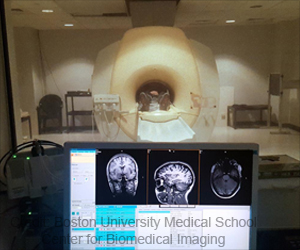
Endocrine disrupting chemicals: exposure, effects on human health, mechanism of action, models for testing and strategies for prevention
Go to source).
‘Hormone Disrupting Chemicals mimic the effect of the hormone estrogen, contributing to a variety of neuroendocrine, metabolic, and reproductive problems. #behavior disorders #toxicology #endocrine disruptors’
Tweet it Now
To explore this further, researchers administered a common PCB mixture called Aroclor 1221 to pregnant female rats. The adults (n=40), their offspring (n=80), and their future grandchildren (n=80) were all tested on behavioral tasks to assess pleasure-seeking, ability to pay attention, and cognitive flexibility.Cognitive Effects of Endocrine-Disrupting Chemicals in Future Generations
The grandchildren of rats exposed to EDCs while pregnant performed significantly worse on these tasks, showing impaired cognitive function and increased pleasure-seeking. This suggests EDCs program potential cognitive disorders or behavioral problems that only emerge in later generations.Grandchildren of rats that were exposed to the PCB mixture were more interested in eating for pleasure, according to the results of the sucrose preference test. While all of the tested animals preferred the sucrose solution to water, the grandchildren of mothers exposed to the PCB mixture consumed more of the sucrose solution.
The same rats had an impaired ability to switch between tasks or learn new rules. However, only the male grandchildren were more likely to become fixated with a visual cue, which is common in disorders such as ADHD.
The PCB mixture impaired different aspects of cognitive behavior between male and female rats, depending on the life stage when they were exposed. It’s not yet clear which biological systems might be driving this.
These findings suggest regulating EDCs in industrial and consumer products could reduce the prevalence of certain cognitive or behavioral disorders in the future (2✔ ✔Trusted Source
Neural generators involved in visual cue processing in children with attention-deficit/hyperactivity disorder (ADHD)
Go to source).
Advertisement
References:
- Endocrine disrupting chemicals: exposure, effects on human health, mechanism of action, models for testing and strategies for prevention - (https://link.springer.com/article/10.1007/s11154-019-09521-z)
- Neural generators involved in visual cue processing in children with attention-deficit/hyperactivity disorder (ADHD) - (https://onlinelibrary.wiley.com/doi/10.1111/ejn.15040)
Source-Eurekalert










